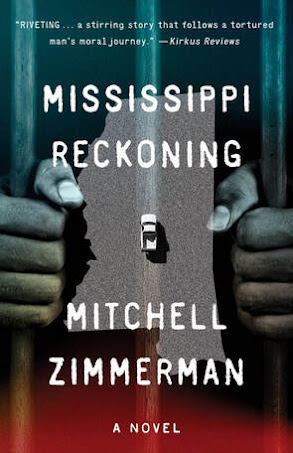Page-turning crime thriller for the times we live in
By Will Collette
Here we are in the middle of Black History Month, but millions of white Americans don’t want their children to be taught anything about black history.
The John
Lewis Voting Rights Act has just been obstructed by every
Senate Republican, aided by two DINOs, Joe Manchin of West Virginia and Kyrsten
Sinema of Arizona.
Mississippi Reckoning
is a fine book to read, even without these current news events, but more so
because of them.
As a fan of crime fiction, I can distinguish
between good versions of the genre and the bad. Mitchell’s book is not only
well-written, but he adds interest by setting up a challenging set of twists
and turns in geography and in time.
I can usually guess the ending of many crime
thrillers, but not this one.
Without giving you any spoilers, there are two
main plot lines that intertwine throughout the book, linked by the theme of
justice and by the main character, attorney Gideon Roth.
The book opens on Gideon Roth’s client, Kareem Jackson, preparing to be executed for a brutal murder. Jackson was heavy drug user and stone killer who understood he was guilty. Gideon’s best case outcome was to get Jackson’s death sentence commuted to life without parole. He failed and watched Jackson die at the hands of the state.
The other main plot line begins during Freedom
Summer, 1964, when hundreds of white students and
activists travelled south to help black activists in the big push for voting
rights.
Young Gideon Roth was among them and found
himself on duty at the Mississippi office of the Congress for Racial Equality
(CORE) the night that James
Chaney, Andrew Goodman, and Michael Schwerner were
kidnapped and murdered by the Klan near Philadelphia, MS.
Gideon’s role that night was
to use a WATS line to the Justice Department to bring in agents to rescue the
kidnapped civil rights campaigners. He did not succeed and carried guilt for
that failure for years to come. That guilt was heightened when the murdering Klansmen were caught
and only received light sentences for the brutal slaying.
After watching Kareem
Jackson’s execution, Gideon’s life fell apart. As he was trying to cope with
this, his mind went back to those days in Mississippi and how differently the Klansmen
were treated compared to Kareem – three year sentences for three brutal murders
compared to the gas chamber for one heinous killing.
These thoughts led Gideon on
a cross-country quest to seek, if you’ll pardon the cliché, truth and justice.
He wanted to know why Kareem
Jackson became an irredeemable criminal and why the Klansmen in Mississippi
literally got away with murder. And Gideon also wanted to figure what he could
and should do about it.
I loved this part of the book
as Mitchell set each new scene bringing alive a different period of history or
vividly describing a different part of the country, while relentlessly moving toward
the book’s climax.
I had a feeling this was
going to be a good book. I have enjoyed reading Mitchell Zimmerman’s political
writing for quite a while and have re-printed twenty of his essays in
Progressive Charlestown.
In his own life, there are
unmistaken resemblances between Mitchell’s life and that of his lead character,
Gideon Roth. Mitchell also defended death row defendants. Unlike Gideon,
Mitchell succeeded in getting one client off of San Quentin’s death row after a
22 year court battle. Mitchell was also a civil rights worker in Arkansas,
Georgia and Mississippi during the 1960s.
His experiences give this book
its authenticity. His use of history makes this book illuminating. And
Mitchell’s writing style makes it a joy to read.
